How to get rid of fruit flies - keep these flying critters out of your house for good
How can something so tiny be so annoying?


If you’re spending your days Googling how to get rid of fruit flies, there’s a high chance that you’re on your last nerve. After all, adult fruit flies are just 3mm long, but that doesn’t stop them from being a giant pain in the rear.
And while we’ve got the hang of getting rid of ants and keeping spiders out of the house, fruit flies continue to be the bane of our existence. They invade our kitchens with their tiny wings and their impressive noses, and they aim to steal our fruit and vegetables and fly in our faces.
Of course, we appreciate their quest to eat their 5-a-day, but as fruit fly larvae normally hatch within two days and start laying their own eggs just a week later, these crittters have a rapid life cycle that’s hard to control. But don’t worry; there are ways to get rid of fruit flies once and for all.
How to get rid of fruit flies
‘Fruit flies are most commonly associated with poor housekeeping,’ explains Phil Greenstock, Senior Surveyor at Shield Pest Control. ‘Before you know it, you’ll have a heavy infestation in your home.’ There are numerous ways to get rid of these fruit flies, though.
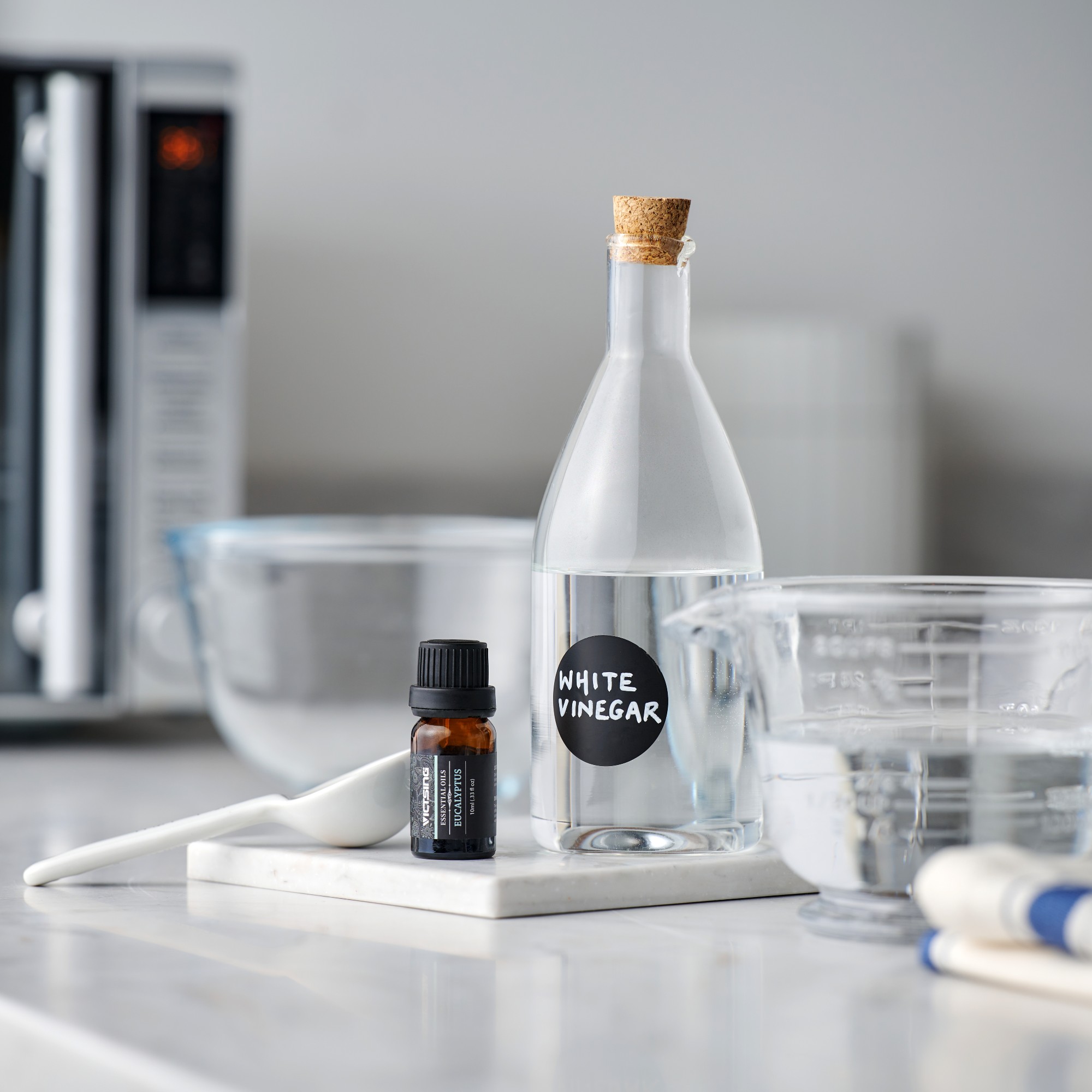
Use apple cider vinegar and cling film
If you didn’t already know, vinegar is becoming a staple ingredient in many houses across the UK - and not just for fish and chip dinners. But knowing what vinegar to use in each circumstance is incredibly important, especially if you want to get rid of fruit flies.
Apple cider vinegar can work a treat when dealing with these flying pests, as the flies are extremely attracted to the sweet and acidic smell. All you have to do is fill a bowl with apple cider vinegar, cover it with cling film, and poke a few holes in the plastic.
As the flies try to get closer, they will get stuck inside the cling film and won’t be able to escape.
Get the Ideal Home Newsletter
Sign up to our newsletter for style and decor inspiration, house makeovers, project advice and more.
Use white vinegar and washing-up liquid
However, apple cider vinegar isn’t the only vinegar option. You can also use white vinegar to get rid of fruit flies, and it’s best to do this with the washing-up liquid you have sitting under your sink, too.
To try this out for yourself, fill a bowl with white vinegar and then add three drops of washing-up liquid. As the flies try to get close to the vinegar, the thick viscosity of the washing-up liquid will trap them and prevent them from flying around your house.
For this option, keep the bowl uncovered for the best results.
Use essential oils
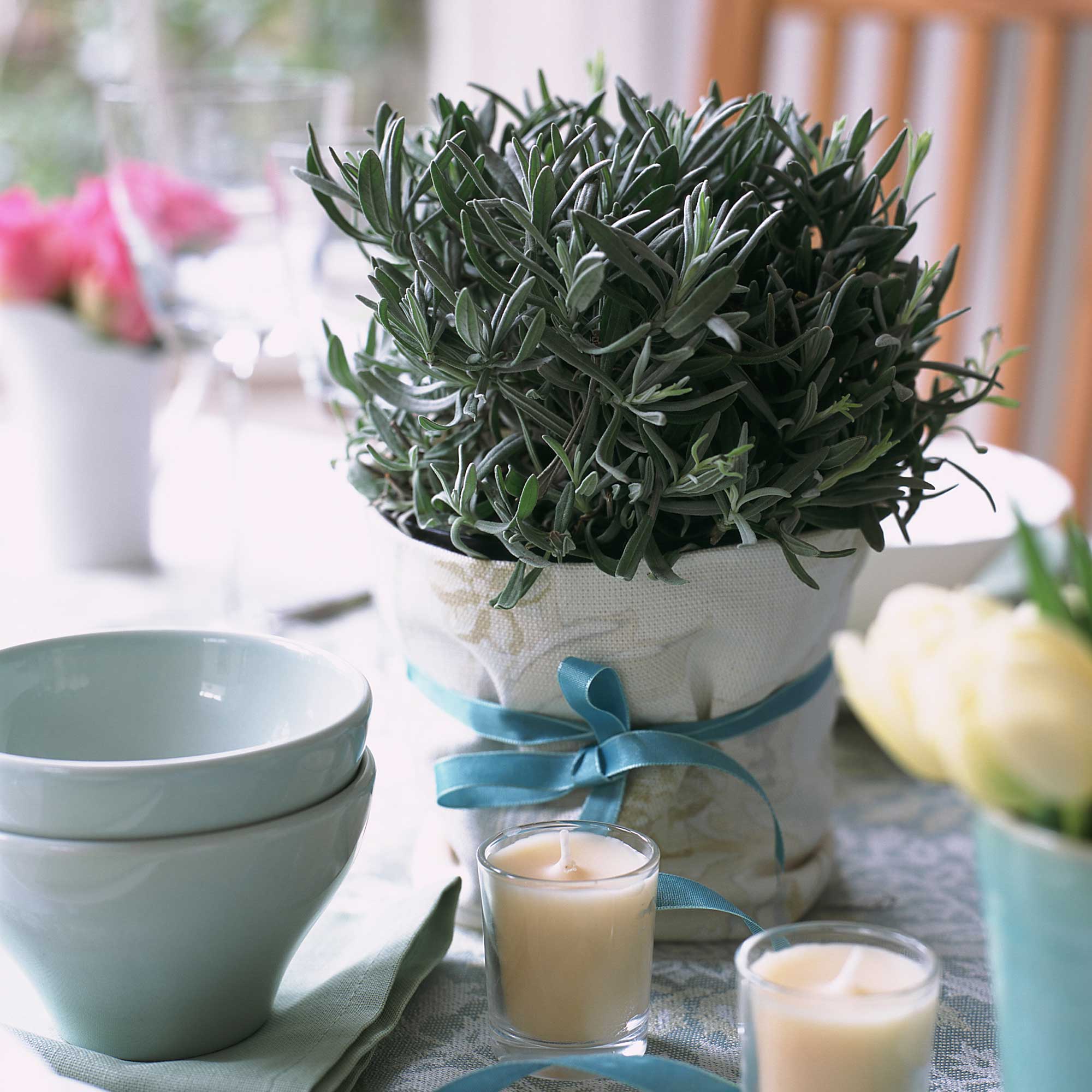
Fruit flies have a very keen sense of smell, as this normally points them in the direction of food. But while they love the smell of delicious rotting fruit and vegetables, there are certain smells that they despise. And you can use that to your advantage when looking to get rid of fruit flies.
They particularly hate lemongrass, peppermint, lavender, and clove. If you have these essential oils lying around, you have two options: you could either create a water and essential oil mix and spray the fruit flies directly, or you could soak cotton wool balls in these essential oils and leave them in problem areas to keep them at bay.
Alternatively, you could even dry your own lavender sachets and leave them on your kitchen counters.
Use a wine trap
A wine trap sounds like something most of us would like to get caught in after a long week at work, but it also works wonders for those struggling with fruit flies in their homes. That’s because fruit flies love the sickly sweet smell of wine and are extremely attracted to it.
So, use this sweet spot as a way to catch them by leaving an open bottle of wine on the kitchen counter. The bottle can be empty, but this option will work best if there are a few drops of wine left over.
Although the flies can easily fly into the bottle, the thin neck of the wine bottle will make it impossible for them to get out. Then, you can simply throw the bottle away.
Use flytraps
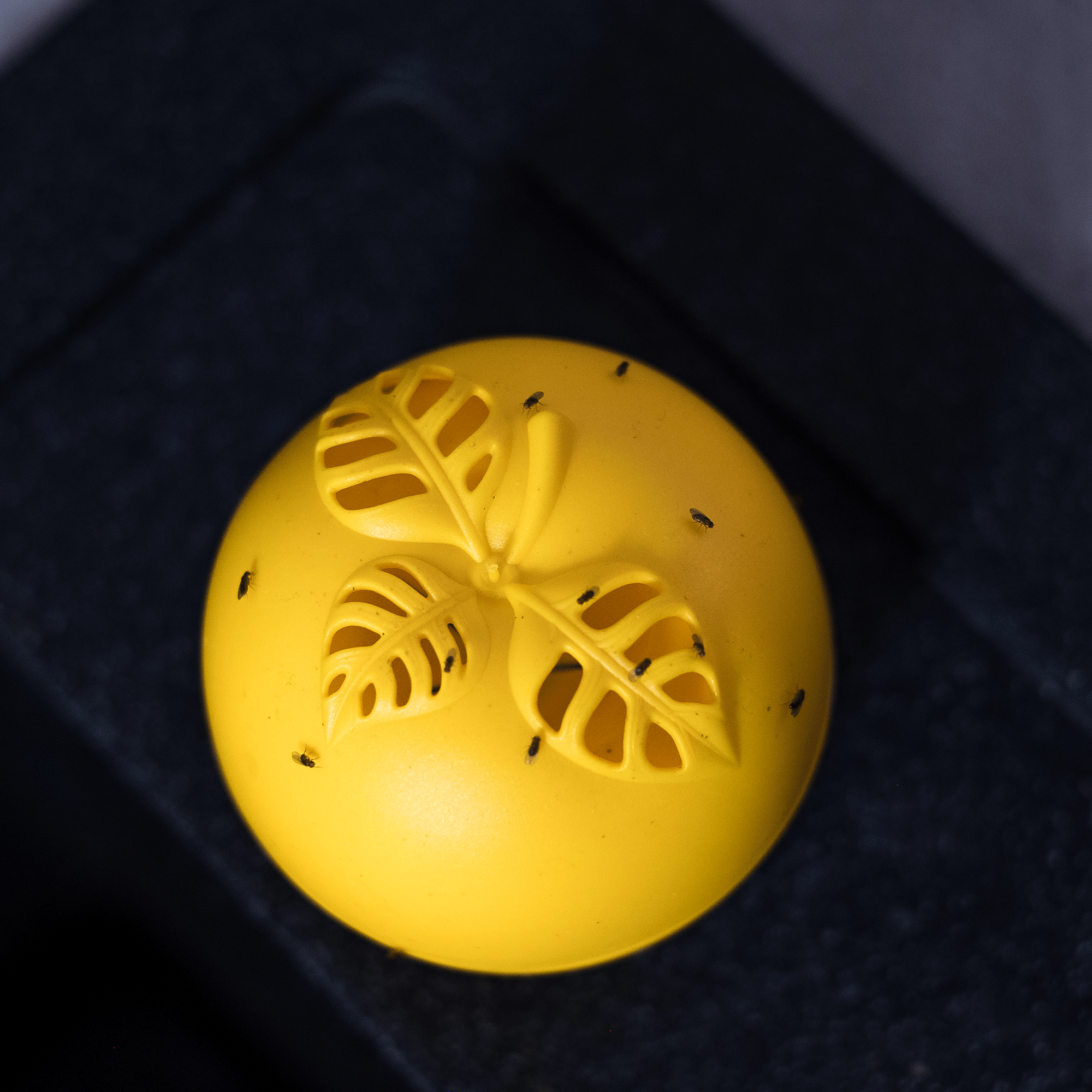
There are so many natural ways to get rid of fruit flies, but if you don’t have any essential oils lying around and you can’t bear to waste your wine, flytraps are always a handy option. These are easy to find online, no matter whether you want to use something like this Super Ninja Fruit Fly Trap (which is a liquid trap) or this Blooven Fruit Fly Traps (which are sticky glue traps).
In fact, these flytraps are the best option for those who don’t want to get too involved in their fruit fly adventures. You can just buy these products and leave them to work their own magic!
How to keep fruit flies out of the house
They say that prevention is better than the cure, and as Phil explains, ‘There is no benefit treating an active infestation until the source has been addressed.’ That’s why you need to focus on making long-term changes to your household habits to keep fruit flies out of the house for good.
Keep food off the counter

As suggested by their name, fruit flies are big fans of fruit. And while you might not think anything of having a fruit bowl on your kitchen counter, this could be doing more harm than good. That’s because fruit flies will do everything they can to get near ripened fruits and vegetables - and they’ll even lay their eggs on them.
To avoid this infestation, try and keep all ripe fruit and vegetables in the fridge. It’s also a good idea to throw overripe food onto the compost heap and immediately pop empty alcohol bottles in your outdoor recycling bin.
Wash your fresh produce
Yes, fruit flies will happily lay their eggs on your fruits and vegetables - and when they do this, they bury themselves into the core of the fresh produce. By placing your food in your fridge, you’ll kill off any fruit flies that tried their luck in the supermarket.
But it’s also a good idea to wash your fruits and vegetables before you eat them. This will remove any extra larvae that may be lingering on the surface, preventing even more fruit flies from calling your house their home.
Wash up as soon as possible
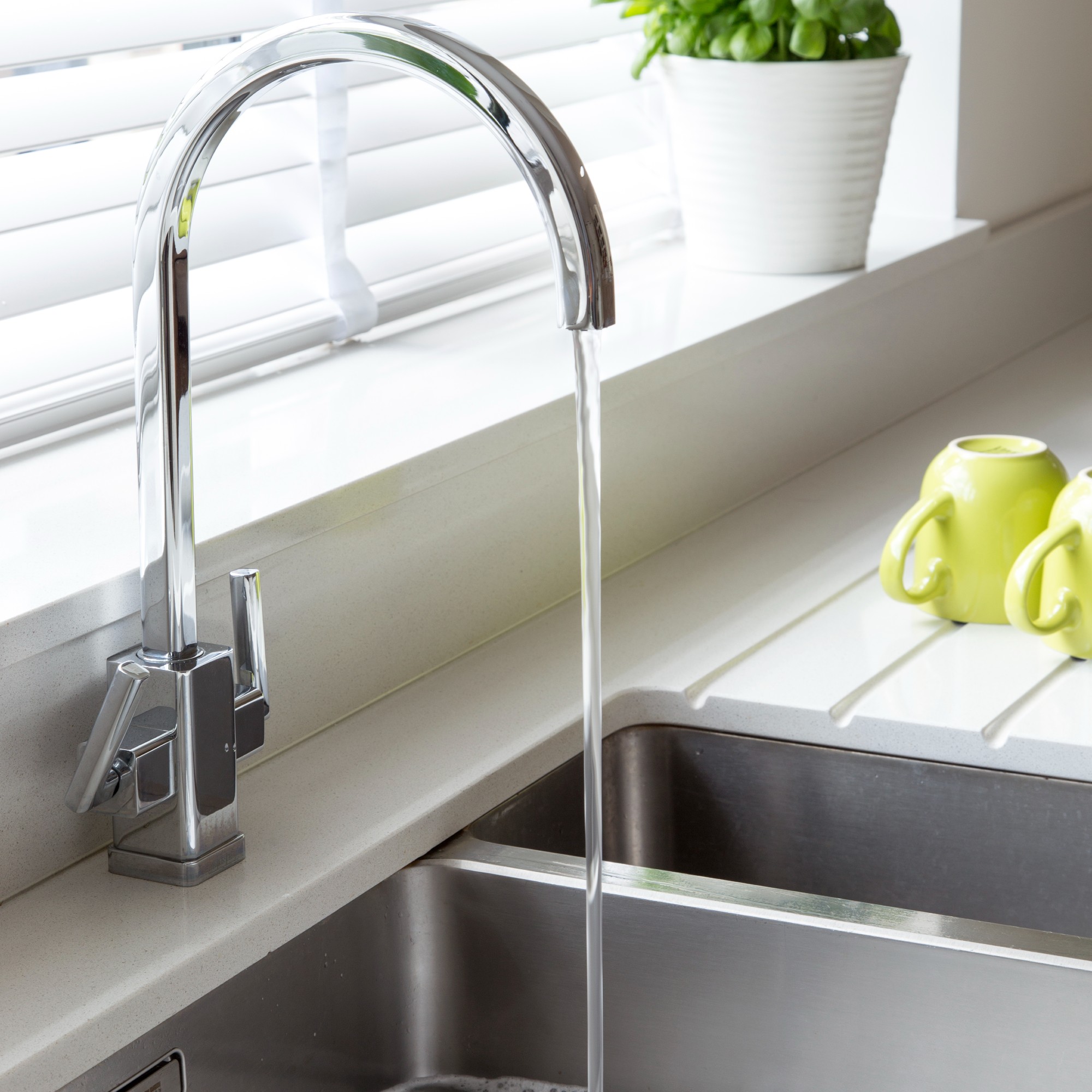
While very few people actually enjoy washing up, it’s something you probably need to do more of if you want to keep fruit flies out of your house.
‘Clean up your pots as soon as you’ve eaten,’ explains pest control expert Walter Murphy at PriceYourJob.co.uk. ‘Bits of food that are left on the pots can attract fruit flies. Similarly, sweet drinks and wine in the bottom of glasses can also attract fruit flies, so be sure to wash up as soon as possible and avoid leaving dirty pots around.'
But if you’re not someone who likes to get their hands dirty, just make use of your best dishwasher, instead.
Take out the bins regularly
As they don’t have a refined palette, fruit flies will happily eat rotten food. Because of this, bins that are filled with leftover food and fruit and vegetable peelings are a breeding ground for fruit flies, as they’re attracted to the pungent smells that come from them.
However, if you’re someone who piles up a bin like you’re playing a game of Jenga, you might want to take the bins out more regularly. By doing this, you can eliminate the chances of fruit flies entering your home and ultimately laying their eggs in your bins. Every so often, give your bin a good clean with soap and water to eliminate any remaining food residue, too.
It might even be a good idea to invest in some clever kitchen bin ideas to keep a lid (quite literally) on these nasty smells.
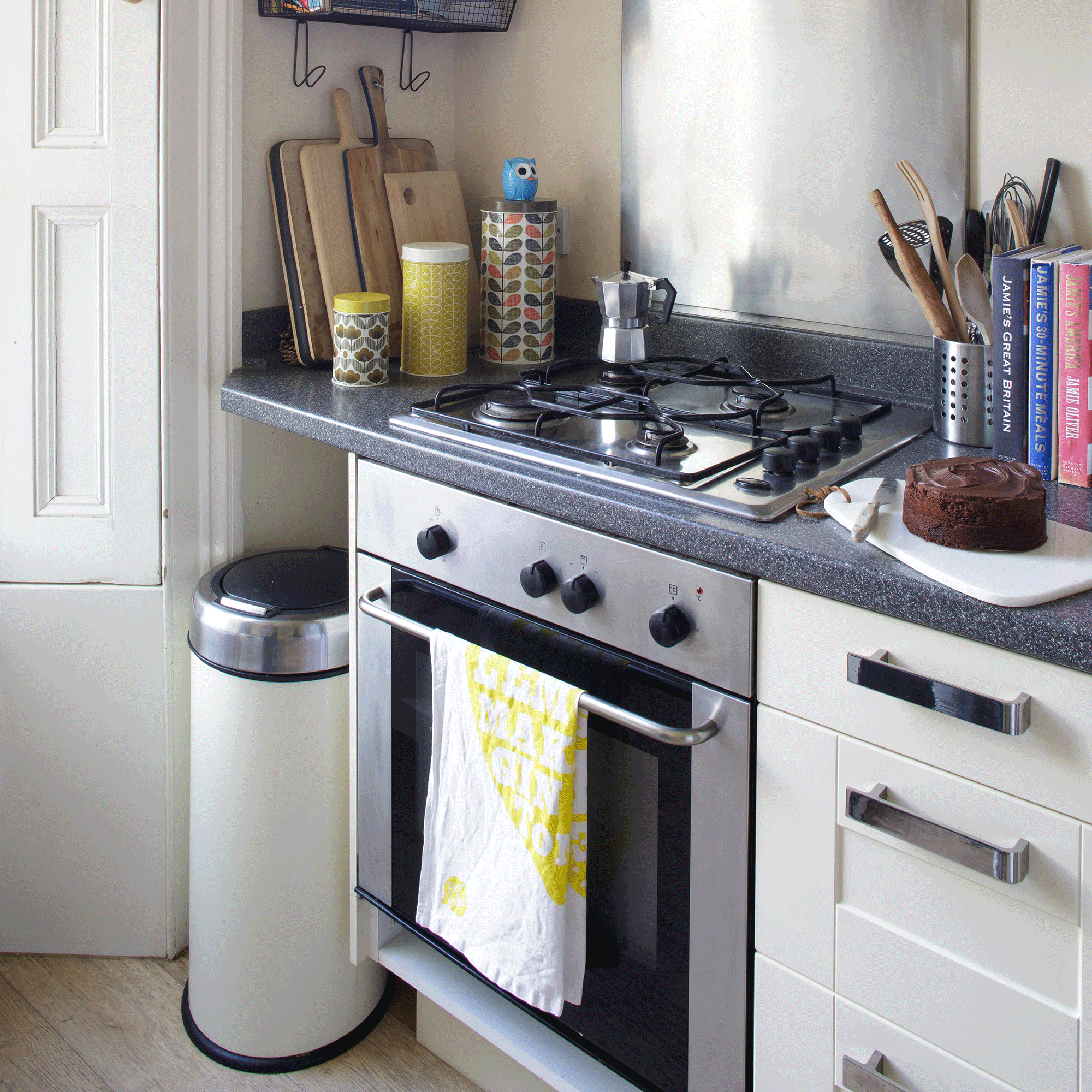
Dry out damp spots
You should always deal with damp in your home, but this is especially important if you’re trying to get rid of fruit flies. That’s because fruit flies love to hang out near standing water, whether that’s a full sink, a dripping shower, or even a leak elsewhere in your house.
To give them less opportunity to do so, try and dry out any damp spots you have. You could do this by fixing any pipe problems you have or using a dehumidifier to pull out any excess moisture in the air.
By doing this, you should be able to keep fruit flies at bay for longer.
FAQs
What is the fastest way to get rid of fruit flies?
Most experts would agree that the best and fastest way to get rid of fruit flies is to use the apple cider vinegar method. This has long been considered the surefire way to kill all of the fruit flies in your house, and it won’t take long, either.
All you have to do is place a bowl of apple cider vinegar on the kitchen counter, with cling film over the top. Then, pierce holes in the plastic.
Because fruit flies are incredibly attracted to the sweet and acidic smell of the vinegar, they’ll make their way into the bowl - without realising that they can’t make their way out. So, they’ll be trapped.
What causes a lot of fruit flies in the house?
If you have a lot of fruit flies in the house, you need to reassess your housekeeping efforts. If you leave rotting fruit and vegetables on the kitchen counter, open bottles of wine on the windowsill, or even spill orange juice on the side, you’ll attract fruit flies quicker than you can say ‘flytrap.’
The life cycle of fruit flies is also incredibly quick, and adult fruit flies can lay up to 500 eggs at a time. If you give fruit flies the chance to stick around, these eggs will ultimately hatch, and the cycle will continue in your home.
So, keep on top of the cleanliness in your kitchen, and make sure you’re removing rotten food (whether that’s on your kitchen counters or in your bins) as soon as possible.

Lauren Bradbury has been the Content Editor for the House Manual section since January 2025 but worked with the team as a freelancer for a year and a half before that. She graduated with a Bachelor’s degree in English and Creative Writing from the University of Chichester in 2016. Then, she dipped her toe into the world of content writing, primarily focusing on home content. After years of agency work, she decided to take the plunge and become a full-time freelancer for online publications, including Real Homes and Ideal Home, before taking on this permanent role. Now, she spends her days searching for the best decluttering and cleaning hacks and creating handy how-to guides for homeowners and renters alike, as well as testing vacuums as part of her role as the Ideal Home Certified Expert in Training on Vacuums, having spent over 110 hours testing different vacuum models to date!
-
 Wood drenching is the calming new twist on the colour drenching trend – here’s how to make the look work in your home
Wood drenching is the calming new twist on the colour drenching trend – here’s how to make the look work in your homeIt’s easier than ever to embrace natural materials
By Maddie Balcombe
-
 Aldi is launching a £200 day bed with four different features - its sleek design is suited to the whole family
Aldi is launching a £200 day bed with four different features - its sleek design is suited to the whole familyYou don't want to miss out on this Specialbuy
By Kezia Reynolds
-
 How to set up a drip watering system that saves water and a lot of effort
How to set up a drip watering system that saves water and a lot of effortKeep your plants hydrated (and your water bill down) with this clever garden watering solution
By Natalie Osborn